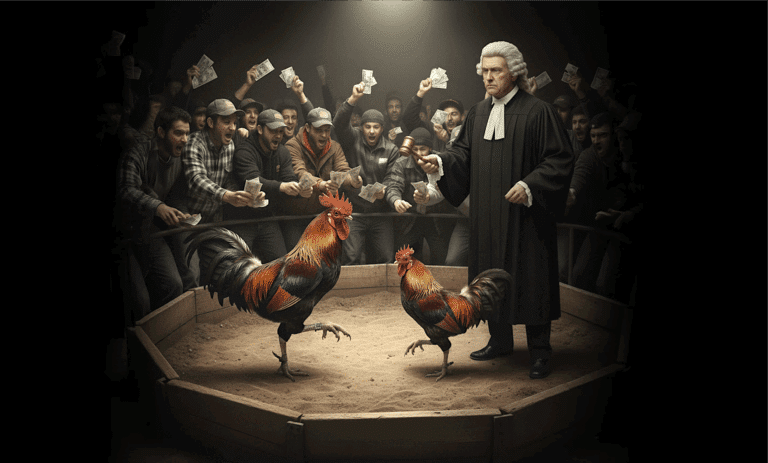In her best-selling book The Shock Doctrine: The Rise of Disaster Capitalism, Naomi Klein argues that times of crisis have been used to impose free-market reforms on an unsuspecting populace.
If we accept Klein’s premise, we should expect that the Harper government will use the ongoing global economic uncertainty as an excuse to bring in free-market reforms and shrink the size of government. Surely an unrepentant conservative like Harper is relishing this opportunity?
Yet when the government took its first steps to address the financial crisis in the November economic update, it called for almost no change in our economic system. Finance Minister Jim Flaherty’s presentation in the House of Commons was notable only for its (quickly jettisoned) proposal to eliminate per vote government subsidies to political parties.
Threatened with a slow death, the opposition responded in the only manner left to them. A proposed Liberal-NDP coalition, supported by the Bloc Quebecois, led to a near constitutional crisis. While the loss of funding was at the heart of the opposition’s outrage, the constant refrain was the ineffective response of the Conservative government in addressing the looming recession.
It was no surprise that the Left found Harper’s refusal to “stimulate” the economy with big spending unacceptable, but where was the rebuttal? As the three opposition leaders berated the Conservatives for their lack of action on the economy, Harper and his team focused on the illegitimacy of the new coalition. This may have been smart politics — indeed, it appears to have worked – but in the process, it did serious damage to public policy discourse in this country.
It seems that the coalition idea is doomed and Harper’s position as Prime Minister is safe, at least for a few months. But at what cost? Harper has joined with Ontario Premier Dalton McGuinty in pledging nearly $4-billion to bailout troubled Detroit-based automakers. There has been talk of aid for other sectors such as mining and forestry. The government is acknowledging that deficits may total upwards of $30 billion in the next few years.
In mere months we’ve progressed from a refusal to consider deficits to talk of a return to Mulroney-esque levels of overspending. The morality of burdening future taxpayers with the consequences of our fiscal mismanagement is questionable. But what’s really terrifying is how easily Harper and his government have slipped into the discredited Keynesian mindset.
[break]
In the 1980s, Margaret Thatcher and Ronald Reagan used the ideas of economists Friedrich Hayek and Milton Friedman to contain, although by no means reverse, the growth of the state and its role in the economy. In the 1990s balanced budgets and (moderate) tax cuts became the rage among Canadian governments and many others worldwide. Many felt the days of profligate spending and deficits, at least at the federal level, were a thing of the past. And yet, with the onset of the first recession since the early 90s, we seem to be slipping back into old habits.
What should concern fiscal conservatives is how quickly our supposed champions folded on this issue. There was no passionate debate in the House of Commons. The Prime Minister was not dragged, kicking and screaming, by a centre-left coalition. Rather, while Harper was busy fighting a partisan battle, he managed to lose the policy war.
The current economic crisis has been used to convince the public that politicians are the ones who must lead us out of uncertainty and back into growth and prosperity. Enemies of freedom and free markets say the government we have isn’t up to the job. They say we need a Prime Minister who knows just how to use a billion here and a billion there to solve our problems. They say we need bigger, better government. Of course, when it comes to government it’s always heavy on the bigger and light on the better.
To make this situation even more tragic, it appears that many Canadians are open, perhaps even receptive, to the idea that increased government spending is not the answer to our economic woes. In a recent survey by The Canadian Press, pollster Harris-Decima found that 54% of respondents said they wanted government to spend within its means, while just 39% thought the government should go into deficit in order to stimulate economic growth.
Some organizations have actually proposed measures that are completely consistent with fiscal conservative principles. The Canadian Association of Retired Persons recently called for “getting government out of the way so they [seniors] can control their own lives and investments.” The Canadian Real Estate Association commissioned a study which identified cuts to sales and income taxes as being among the most effective ways to stimulate the economy. The Canada West Foundation released a poll of 25 leading economists, who overwhelmingly favoured the use of tax cuts over government spending as a means of economic stimulus.
Sadly, the current government has spent most of its political capital on a failed attempt to save the public purse a mere $30 million — the approximate cost of the per vote subsidies paid to political parties. Faced with the possibility of losing the job he loves, Harper has opted to throw his remaining principles overboard in an effort to hold on to power. There is a strong case for keeping the budget balanced; one that would appeal to ordinary Canadians who have to balance their household spending from month to month. But after a humbling loss of face in his last political showdown, the Prime Minister is seeking reconciliation instead of a standoff over fundamental principles.
[break]
Naomi Klein uses selective examples that fit into her preconceived thesis to make the case that times of crisis have been used to reduce the role government. But the true history of crisis is a legacy of bigger and bigger government. World War I gave Canada the income tax (which was originally supposed to be a temporary measure). The Great Depression led to the creation of transfer payments, a tool that successive federal governments have been using to encroach on provincial jurisdiction ever since. World War II seemed to trigger an almost universal admiration for the power of a command and control economy, an admiration that lasted decades.
In his book Liberal Fascism, author Jonah Goldberg condemns the Left for what he claims is an obsession with “the moral equivalent of war”, a cause that will persuade citizens to abandon individual desires for the sake of the common good – handing power to the central planners in the process. It seems that the economic crisis may be just such a cause.
Across the country a handful of academic policy papers, journal articles and newspaper editorials will go against the Keynesian tide. But in Ottawa, where the real power rests, not a single MP has stood up to reject the principle that government spending is the solution to economic malaise. Privately, away from reporters and Hansard transcribers, some of them may tell us they object to what’s being done in their name. But they have no choice, they’ll claim, otherwise the Liberal-NDP coalition will be worse. They may be right, but it’s a situation that is of the government’s own creation.
Some pundits say that the Conservative Party’s flexibility is a sign of maturity. That moving to the center is a necessity for a party that hopes to govern. There is some wisdom in this words, a party that wants to compete must identify with a plurality of voters. But such a party can still pick its battles. If the government had opted to accept mainstream opinion on issues like arts funding and payments to parties, it could have kept its powder dry. The evidence indicates that a large number of Canadians would listen to the conservative argument for a balanced budget and stimulative tax cuts. Harper chose to fight a $30 million battle and lost a $30 billion war because of it.
For those of who care more about the policies of the party in power than the colour of its lawn signs, there is some hope. No public policy battle is ever truly lost. It appears that those who favour big government have won this round, but their victory is temporary. There are policy analysts, journalists, and academics across Canada that make the case every day for less government and more free enterprise. They can give conservatives the tools to fight for policies that matter, if only Conservatives will pick up those tools and use them.






